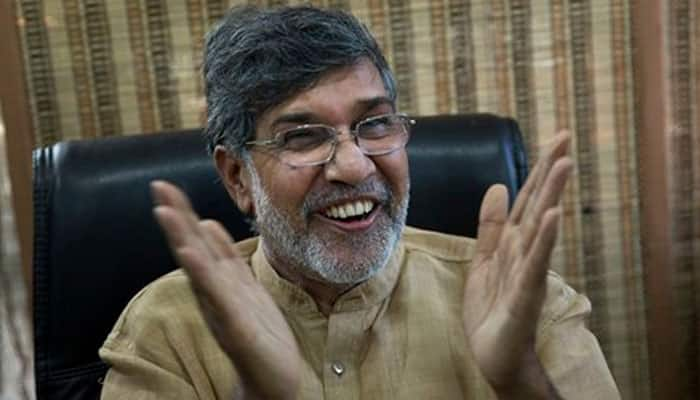'Who is Kailash Satyarthi?' was the first reaction from all and sundry when his name began trending on news and social media. While many of us know who Malala Yousafzai is, we hardly know about this man who was shrouded in anonymity until the colossal Nobel Prize was conferred upon him. Always maintaining a low profile, Mr Satyarthi's win indeed is an exception to the publicity-seeking, attention-hungry samaritans and a nudge to the lethargic media.
On Friday, the 2014 Nobel Peace Prize was awarded jointly to Kailash Satyarthi and Malala Yousafzai “for their struggle against the suppression of children and young people and for the right of all children to education,” as announced by the Norwegian Nobel Committee.
Kailash Satyarthi, has been at the forefront of a crusade against child labour - India's abominable curse and a crime against humanity. A shame fuelled by the infelicitous fact that India is home to the largest number of working children in the world where thousands of children are suffering slavery, bonded labour and trafficking. Ripped off innocence, these children remain alien to the concept of freedom and are deprived of weaving dreams. Peace cannot be imagined in such a world where the rights of the helpless and voiceless are violated to such disturbing degrees.
Bestowing the Peace Prize to a well-deserving person, the Nobel Committee has also coerced our attention to one of the most disturbing perils of our age. This recognition and acknowledgement will surely help in focussing on the cause of children who are oppressed, most neglected and deprived.
According to a data by the Indian Labour Department, around fifty lakh children are working in hazardous conditions. Paan, bidi and cigarette manufacturing industries employ the largest number of child labourers, followed by construction businesses and domestic work.
Way back in 1980, Satyarthi founded the Bachpan Bachao Andolan (Save the Childhood Movement) listening to his true calling. There he began raiding factories, brick kilns and carpet-making workshops where children and their indebted parents often pledge themselves to work for decades in return for a short-term loan.
His efforts led to freeing of around an astounding 80,000 children. Despite threats and being subjected to tortures, his relentless struggle against this rigid social evil is praiseworthy and truly inspiring. In 1994, he started Rugmark, now GoodWeave International, in which rugs are certified to have been made without child labour.
In the late 1990s, Satyarthi was a lead organiser of the Global March Against Child Labour, aimed at raising consciousness about millions of children abused worldwide in form of modern slavery.
Also recently he has launched operations to rescue girls sold into abusive forced marriages and helped turn hundreds of villages into rehabilitation centres to teach life skills and trades to abused teenagers.
“I was not born to remain an engineer – the passion from my childhood was to work for children,” said Satyarthi after learning of the Nobel Prize.
Mr Satyarthi's win is truly a triumph of all those innocent souls whose voices have been crushed and trampled over. But his work is not accomplished yet, as there are 4.3 million children out there to be rescued. We need many like him so that these caged birds can finally fly!







